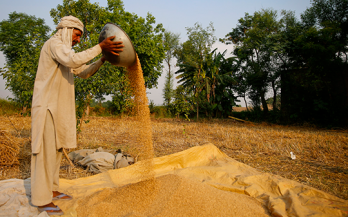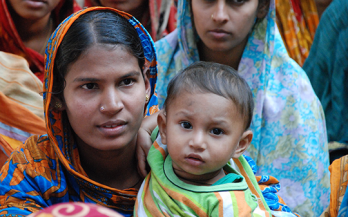USAID Tajikistan commissioned GAIN to assess the wheat sector in Tajikistan and identify opportunities for strengthening flour fortification with micronutrients. This report follows a desk review and interviews in October 2013, a mission to Kyrgyzstan, Kazakhstan and Tajikistan in late October to November 2013 and analysis of feedback from national stakeholders in early 2014.
In Afghanistan and Pakistan, there is a severe vitamin and mineral deficiency problem, including deficiencies in vitamin A, vitamin D, iron, folate and zinc. To effectively mobilize the industry and initiate the production of fortified wheat flour as per Afghan requirements, an industry assessment was conducted during November and December 2016.
GAIN implemented the Tajikistan Technical Support Project to Reduce Micronutrient Deficiencies with financial support from the United States Agency for International Development (USAID) from October 2014 to December 2017. The project’s goal was to improve nutrition for vulnerable women and children in Tajikistan.
The Global Alliance for Improved Nutrition (GAIN) has developed a successful program in several East African countries to address malnutrition through a market-based approach – the Marketplace for Nutritious Foods. This program is in place in Mozambique, Tanzania and Kenya, and is being expanded to Rwanda.
The objective of the study was to assess the present knowledge among rural families (including general population, pregnant women, lactating women and adolescent girls) on food fortification and their attitude and behaviour towards regular use of fortified atta.
GAIN supports the manufacturing of multinutrient powders called Pushtikona targeted at infants aged 6 to 24 months. The overall objective of the evaluation was to identify strengths and weaknesses in program implementation, processes and uptake, which could ultimately affect program outcomes in Bangladesh.
Postharvest losses of fresh tomatoes in Nigeria represent a significant waste of the resources used to grow this crop as well as a missed opportunity to supply nutrients to Nigerian consumers. This study sheds light on the nutritional benefits of dried tomatoes and shows how the nutrient content is affected by the various drying and storage methods used in Nigeria.
Afghanistan depends substantially on food imports from neighbouring and other regional countries due to being landlocked with limited water and agricultural resources. GAIN has been working to improve nutritional outcomes of the population through fortification projects for two major products: wheat flour and edible oil/ghee. This report is a supply chain assessment of these two food products in Afghanistan.
Bangladesh is effectively implementing measures to address high rates of malnutrition. This brief presents the Pushtikona model and the partnership formed with Renata, a pharmaceutical company and BRAC, to deliver micronutrient powders across Bangladesh.
In this Learning Brief, the Postharvest Loss Alliance for Nutrition (PLAN) explores some of the equity funding options available to small- and medium-sized agribusinesses in Nigeria. This brief is meant to serve as a primer to help business owners gain a better understanding of how to make their business ideas more attractive to investors.










